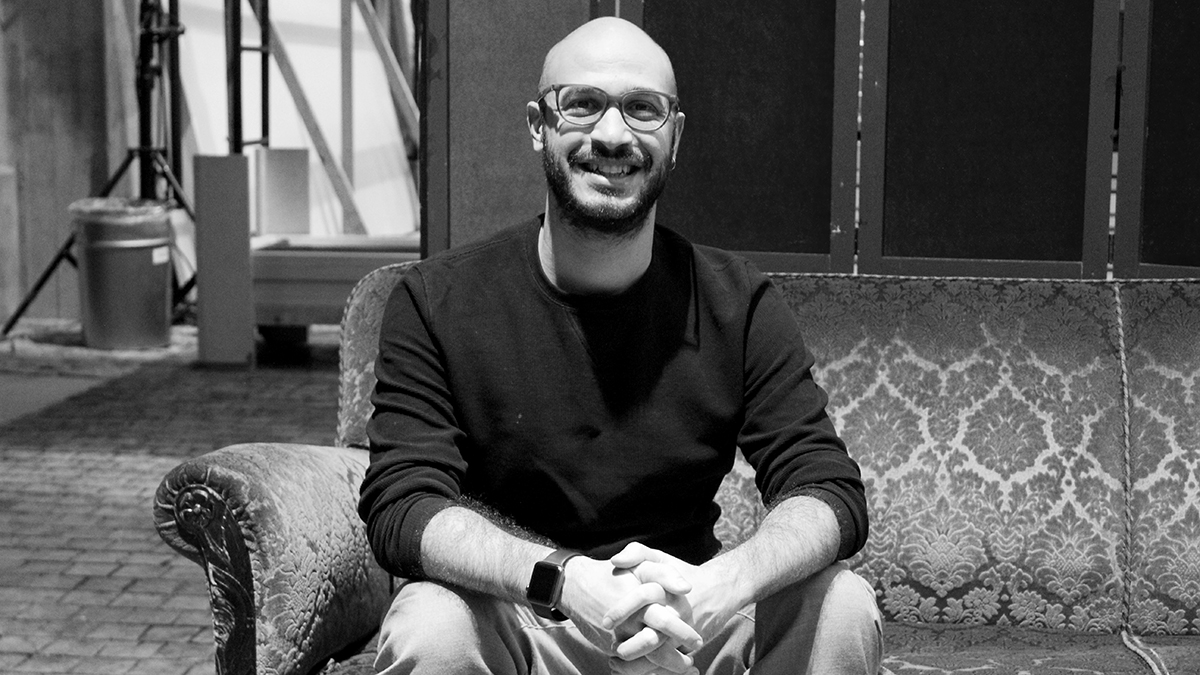Dance pedagogy degree student: Plant your own seeds in your journey to become a teacher
Read an interview with David Scarantino.

Tell us who you are and how you ended up studying at Uniarts Helsinki.
I’m David Scarantino, I’m a dancer and a teacher for Tero Saarinen Company. I’ve been working in Finland for six years. As I started teaching more, I wanted to have a pedagogical base to continue my work and decided to apply to the dance pedagogy programme 2 years ago. I did my BFA at SUNY (State University of New York) Purchase in 2011 with a double major in performance and choreography.
What was your entrance exam like?
We had a technique class that included improvisation, some creative work in groups and an interview. We also had a writing assignment where we reflected on the act of being on stage. As a critique to the process, though, there was a lot of looking at our performance quality as a way to judge our pedagogical abilities, which I found questionable. Nevertheless, I find all my peers to be really inspiring.
What were the pre-assignments like?
They were very reflective and already directed you to think about your interests regarding your thesis and the kind of arc you would have for the 2-year study period. Two years is a short amount of time. This is good to have in mind from the beginning. Even if your ideas transform and change, the program is set up to help you find your own research methods and reflective processes in order to prepare for the Thesis work.
How has studying been so far?
As with any learning process there are ups and downs. Entering from the performance world to the academic world has been kind of jarring for me. I still need more time to reflect the changes that have been happening from the beginning. It took some time for me to adjust from the US style of teaching, which is more goal-oriented and positivist in its approach. In transformative learning, uncomfortability is part of the process, and that is something that I have also had to learn personally.
Are there any memorable courses or projects that stand out?
What I have always enjoyed is when I’ve been able to work closely with the others in our class. As we all come from such different worlds, you really get a lot of insight about what is current and where all the possibilities of teaching can go.
What does a typical school day look for you?
I’m in the middle of my thesis process right now, reading about neomaterialism, post-colonial feminism and applying research in an ethical way. Now it’s really about your own personal dedication. Normally there would be studies from 9am to 4pm, with a form of body practice in the mornings and theory in the afternoons.
How is living in Helsinki like?
The facilities are amazing. You really realize how privileged it is to have this publicly funded school and education system. The hardest thing is to know that winter comes and darkness with it, but it’s the people that bring the light. As cheesy as that may sound.
What’s the best in your studies?
The most enjoyable is also one of the hardest – there is so much freedom. You can really explore any direction you want to take, yet the schedule is very tight. With freedom comes not knowing and this is where duration matters. The time to explore the unknown. But the support from the teachers really helps this journey.
What has been the most challenging?
How this programme is set up is very unique but one that the institutional structure can’t necessarily support. How to maneuver a personal and free approach to learning while fulfilling the rigid bureaucracy of the institution, is a constant balancing act. There’s the push and pull. One that has, excitingly enough, lead me to questioning the deconstruction of how we approach learning in our every day life.
What advice would you give future applicants?
The reason that I originally applied to the programme was that I thought a degree would be a way to get a good pedagogical base, which would make my teaching more valid. However, what I have found is so much deeper than that. Be aware that the programme here is basically helping you to plant your own seeds in your journey to become a teacher. It doesn’t really impose its own ideal of how a teacher should be. Teachers should continue to educate themselves throughout their teaching practice. Anyone interested in teaching should apply. Also, be prepared to study full-time from 9am-4pm daily. As the programme accepts new students every two years, making up classes can be difficult.